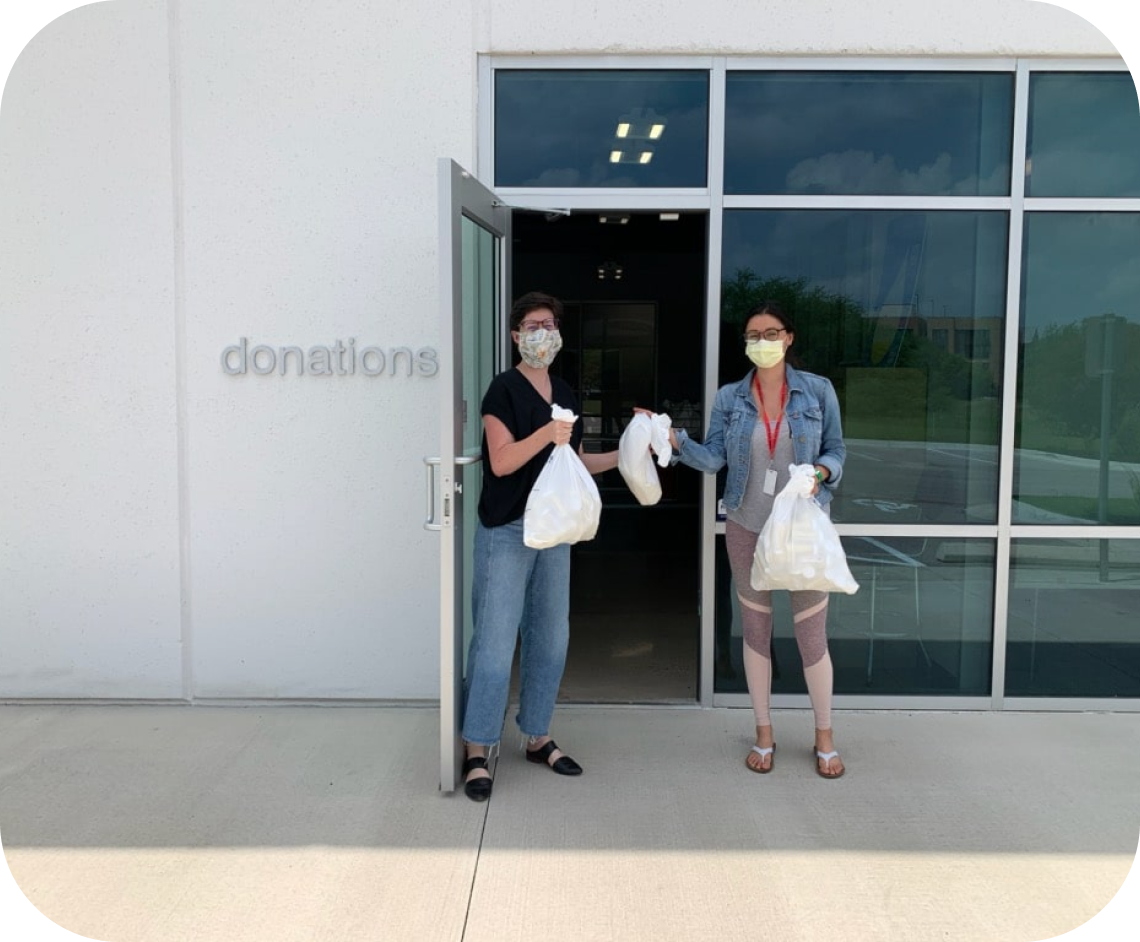
Hello, you are using an old browser that's unsafe and no longer supported. Please consider updating your browser to a newer version, or downloading a modern browser.
Hello, you are using an old browser that's unsafe and no longer supported. Please consider updating your browser to a newer version, or downloading a modern browser.

Yes! Babies born too early, too sick, or too small need human milk to have the best chance of surviving and thriving. There are 72,000 of these babies born in the US each year and their moms are least likely to have enough milk of their own. We’re committed to filling that gap, but we need more milk to fill the gap. And when our supply allows for it, we can also take care of healthier babies who still deserve human milk.
Our donors are in their first year postpartum and have extra milk to share. They're most often feeding their own babies, and built up a freezer stash of milk their babies didn't need. Many of our donors are exclusive pumpers, while some collect milk while nursing or pump an extra time at night so they can donate.
Maybe. Some medications are approved to use while donating, and some aren't. Because we feed extremely premature babies, our guidelines for medications may be more strict than what your healthcare provider has recommended for breastfeeding moms. Call us to check about specific medications.
Maybe. Most herbs are unregulated, and many are known to pass through breast milk to babies. Teas and baked goods have small amounts of herbs and are safe for donors. Call us to check about specific herbs. We can almost always take milk pumped after you stop the herbal supplements.
No, sorry. We can't accept any milk that's been heat-treated in any way - including boiling, scalding, warming, or thawing.
Yes! We will happily accept your high lipase milk, as will our recipient babies. Lipase is destroyed during our pasteurization process. Just make sure not to heat your milk before donating it.
Maybe. Alcohol is known to transfer into breast milk for a period of time after you drink it, and everyone metabolizes alcohol (flushes it out of their milk) at a different rate. Donors have to wait 6 hours after each serving of alcohol before pumping, and they can’t drink alcohol every day.
Maybe. We can take milk that's been frozen for less than 8 months.
If you're thinking of donating, move your milk to the freezer within the first 4 days after pumping it. Freeze it even sooner if you know you won't need it right away! The sooner the better, since freezing is the best way to protect the good components of your breast milk and keep bacteria from multiplying.
Take hygiene seriously while you're pumping. Wash your hands before every pumping session. Don't share a pump with anyone. Rinse your pump parts after each session, and keep them in the fridge between sessions to slow down bacteria growth. Once a day, wash and sanitize your bottles and pump parts. Store your milk in sanitized containers like breast milk storage bags or the free plastic cups we provide to our donors.
No. Milk donors are volunteers who donate to help save fragile babies. Your donations keep the cost of donor human milk as low as possible for families who need it!
No. Sadly, the IRS doesn't allow a deduction for donating any kind of human tissue. But, you can deduct mileage from your milk donations, as well as the cost of your breast pump and accessories.
Yes! Research shows that necrotizing enterocolitis (NEC), a primary cause of death and illness for preemies when human milk feedings are unavailable, will increase the medical costs for one baby between $128,000 and $238,000. In addition, reductions in other complications such as retinopathy of prematurity (problems with vision) through the use of donor human milk instead of formula means that the baby goes home sooner with fewer medical issues - and stays healthier long term.
Donated milk is prescribed for babies in Texas and all over the United States, providing them with a safe alternative when mom’s own milk is not available. The majority of our recipients are hospitalized preterm or sick babies who benefit from the optimal nutrition, easy digestibility, and infection-fighting components of human milk. After first meeting the needs of hospitals, we also serve babies who are being cared for at home.
Babies initially take only drops of milk every 3 hours, but as they tolerate it they are able to take more. A baby weighing 2 pounds takes up to 5.5 ounces of milk daily A baby weighing 4.5 pounds takes up to 12 ounces of milk daily A baby weighing 6.5 pounds takes up to 18 ounces of milk daily
No! Donor milk is pasteurized to destroy bacteria and viruses that are present in milk. A small amount of growth enzymes and immunological components are decreased by pasteurization, but pasteurized milk retains the majority of its most beneficial qualities. Pasteurized donor milk still has many special properties that can't be duplicated by commercial milk formulas.
Yes. Milk donors are screened for lifestyles and medical conditions that might put them at risk for acquiring HIV/AIDS, and no donor is approved until they are determined to not be at risk, and their blood work shows negative for HIV. As an extra precaution, all milk is pasteurized (which kills the HIV virus). These procedures adhere to the standards of the Human Milk Banking Association of North America (HMBANA), in addition to the recommendations of the Centers for Disease Control and Prevention (CDC).

Uncategorized
Sophia and Gloria’s story of persistence, love and belief motivates us. How about you?
Uncategorized
Ordering milk: Families must contact MMBA each week to request milk for their child. Contact us via email: needmilk@milkbank.org or call us at (512) 494-0800 or toll free (877)...
